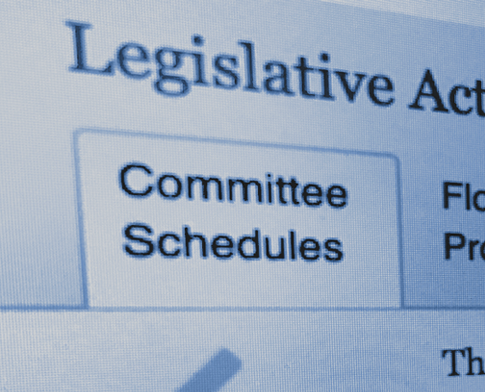Groups Call for Action on Energy Bill
This week, a group of more than 70 organizations across energy sectors urged Congress to pass the American Energy Innovation Act,
S. 2657. The bipartisan bill stalled earlier this year due to an impasse over hydrofluorocarbons (HFCs). Last week, a group of senators announced a compromise on the coolant, opening a path forward for the legislation.
“We believe that the AEIA represents one of the most consequential legislative initiatives for modernizing our nation’s energy policies since the enactment of the Energy Independence and Security Act more than a decade ago,” the groups wrote in a letter to Senate Majority Leader Mitch McConnell (R-KY) and Minority Leader Chuck Schumer (D-NY) on Friday (Sep. 11).
To view the letter, click
here.
LNG
On Wednesday (Sep. 16), the Trump administration approved a permit for a proposed liquified natural gas (LNG) export terminal in Alaska. The permit is a key regulatory step for the long-planned project.
Granted by the National Oceanic and Atmospheric Administration, the permit allows developers of the Alaska LNG authority to incidentally disturb or kill marine mammals. The Federal Energy Regulatory Commission (FERC) is now left to decide whether Alaska Gasline Development Corp. can proceed with construction.
Alaska Gasline Development Corp. has not said when it will announce a final investment decision on whether to proceed with the project.[1]
McKinley / Schrader Legislation
Representatives David McKinley (R-WV) and Kurt Schrader (D-OR) have been circulating draft language this week for a bipartisan energy innovation bill that would include a federal clean energy standard. The legislation would aim to decarbonize the power sector over 30 years. It would also invest in clean energy technology; support the deployment of carbon capture, utilization and storage; and provide tax credits for advanced renewables.
The pair is looking to formally introduce the bill in November.[2]
House / Senate Energy Legislation
On Tuesday (Sep. 15), House Democrats unveiled the clean energy legislative package that the chamber will vote on next week.
The bill,
H.R. 4447, aligns with the energy legislation that Senators Lisa Murkowski (R-AK) and Joe Machin (D-WV) proposed in the Senate and would set up potential conference negotiations later this year.
The Senate bill,
S. 2657, would authorize around $23 billion in new spending over the next five years for Department of Energy (DOE) research and development technologies needed to reduce greenhouse gas emissions.
The House package includes more text on climate spending and mandates, and aims to please both progressives and moderates in the caucus.[3]
Second Term Energy Priorities
At an event on Thursday (Sep. 17), Energy Secretary Dan Brouillette pledged Trump would keep his “all-of-the-above” approach on energy if he were to win a second term in office.
“The things that we’ve put in place are actually working,” Brouillette said. “So we’re going to continue this type of approach, all-of-the-above … producing all forms of energy here in America, producing all forms of energy that again provide consumers with options and provide competition in the marketplace,” he added.
Brouillette also said the U.S. had suffered for years from problems that made it expensive to produce and buy energy, but noted those issues were now gone.
“What is challenging us, I think what is challenging the industry, is an infrastructure problem. We need more pipelines. We need more export facilities. We have to improve our permitting processes so that we can allow this infrastructure to be build more quickly, more efficiently,” he said.[4]
In August, the Trump Campaign released a list of priorities for a second term that included a focus to continue the deregulatory agenda for energy independence.
FERC
On Thursday (Sep. 17), FERC approved, by a 2-1 vote, a rule that would allow behind-the-meter power products to band together to sell electricity into wholesale energy markets.
The order enables distributed energy resources (DERs) to participate in regional wholesale energy markets. DERs can include electric storage, demand response programs, energy efficiency, thermal battery storage, distributed generation (like solar), electric vehicles, and smart appliances.[5]
Republican Chairman Neil Chatterjee and Democrat Richard Glick championed the draft market rule, and said it would fuel the transition to a clean energy economy.
“Order 2222 is a landmark, foundational rule that paves the way for the grid of tomorrow,” Chatterjee said. “I am honored to be at the helm of the agency as we bring this critical rule across the finish line and continue to navigate our nation’s energy transition,” he added.
Regional grid operators must now revise their tariffs to allow DERs to aggregate and participate in markets.
To view FERC’s fact sheet on Order No. 2222, click
here.
Chatterjee also said on Thursday (Sep. 17) FERC will not ask the Supreme Court to reinstate its power using “tolling orders” to delay hearing requests. Under the new system, if the commission misses its 30-day deadline, it will send a notice saying the rehearing has been denied under force of law. However, FERC will also use the notices to tell parties when it is considering modifying or setting aside a decision in the coming days.[6]
Wildfire Legislation
On Wednesday (Sep. 16), the Senate Energy and Natural Resources Subcommittee on Public Lands, Forests, and Mining held a legislative hearing on various public lands bills.
Senators Dianne Feinstein (D-CA) and Steve Daines (R-MT) spoke on their legislation,
S. 4431, which would speed some environmental reviews in national forests and ease hurdles for forest management projects when endangered species might be affected.
The hearing was the first public forum on the bill, which has a bipartisan companion in the House.
To view an executive summary of the hearing, click
here.
References


